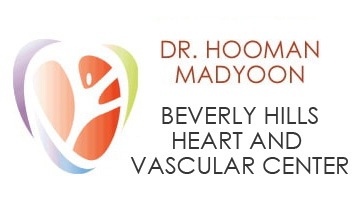Myocardial ischemia is a debilitating condition that can impact a patient’s general sense of well-being in ways both large and small. Given that the condition impacts the heart and involves the amount of oxygen that it receives, it makes sense that one would want to take treating this condition as seriously as possible. Below, we look at the top risk factors for ischemia.
Top Risk Factors for Ischemia
With conditions like these, it’s important to stay on top of the kinds of warning signs, indications, and risk factors for the development of this condition. This can give you a higher chance of successfully treating and combating the condition.
What Is Ischemia?
Myocardial ischemia is a condition that occurs when the blood flow that is directed to the heart muscle is obstructed by a partial or complete blockage of the coronary artery by cardiovascular plaque.
This subsequently impacts the heart’s ability to healthily pump blood. This also increases one’s vulnerability to receive a heart attack of some kind over the course of one’s lifetime. It can also lead to the development of abnormal heart rhythms, as well as peripheral artery disease.
Overall, you can improve your chances of successfully combating and treating the disease by engaging in heart-healthy lifestyle choices consistently. You can discuss with your cardiologist what kinds of behaviors you can engage in to improve this element of your health.
Symptoms of Ischemia
The symptoms of ischemia can be quite varied, and sometimes, individuals don’t experience any symptoms at all.
The most common symptom of ischemia is chest pressure or chest pain, which typically occurs on the left side of the body. Some of the other common symptoms of ischemia include the following indicators:
- Should or arm pain
- A fast or irregular heartbeat
- Neck pain
- Jaw pain
- Shortness of breath, especially when you are exercising
- Excessive sweating
- Fatigue
Some of these symptoms are more or less common depending on one’s gender and the other elements that impact one’s health.
Causes of Ischemia
There are many plausible causes of ischemia, many of which include other conditions of the cardiovascular system. Some of the more common conditions or causes include the following:
- Blood clots: the plaques in the blood that coagulate over time can rupture. This leads to the development of a blood clot. This can lead to a number of subsequent issues, including ischemia and heart attack. Blood clots can also travel from the coronary artery to other parts of the body.
- Coronary artery disease: In this condition, plaques made mostly of cholesterol build up slowly over time. This is the most common cause of myocardial ischemia.
- Coronary artery spasm: This is a temporary tightening of the muscles, which can decrease or prevent blood flow to the heart muscle. This is a relatively uncommon cause of myocardial ischemia.
Cholesterol in the blood can lead to the development of atherosclerosis, which is the most common cause of the development of ischemia. Sometimes, the chest pain associated with these conditions can be triggered by other events, such as the following:
- Emotional stress
- Physical exertion
- Cold temperatures
- Eating heavy foods
- Sexual exertion
- Cocaine usage
Risk Factors of Ischemia
There are many behavioral characteristics that can lead to the development of myocardial ischemia. Some of the following are considered some of the most common risk factors:
- Diabetes: Type 1 and 2 diabetes are linked to an increased risk for the development of ischemia, as well as other heart problems.
- Tobacco usage: Smoking can be very detrimental to one’s health in general and can exacerbate the development of cholesterol and plaque in the arteries.
- High cholesterol: High cholesterol can greatly increase the potential for developing ischemia.
- High blood pressure: High blood pressure can lead to the development of atherosclerosis, one of the leading causes of ischemia.
- Obesity: Obesity increases your susceptibility to developing the other risk factors that lead to ischemia.
- Waist circumference: Waist circumference, BMI, and other indicators of obesity can increase the risk of developing high blood pressure, heart disease, and diabetes.
- Little physical activity: Slacking in the exercise department can be disastrous for your health in general. On the contrary, getting regular aerobic exercise has the potential to increase your heart health, reduce blood pressure, and reduce your chance of developing ischemia.
The Best Cardiologist in Southern California
Dr. Hooman Madyoon and the rest of the team at Beverly Hills Heart and Vascular Center are considered one of the best resources available for patients who are looking for solutions to cardiovascular problems of all stripes. If you’re interested in having a conversation with a cardiovascular specialist regarding your own cardiovascular health, contact us today to set up an appointment.

